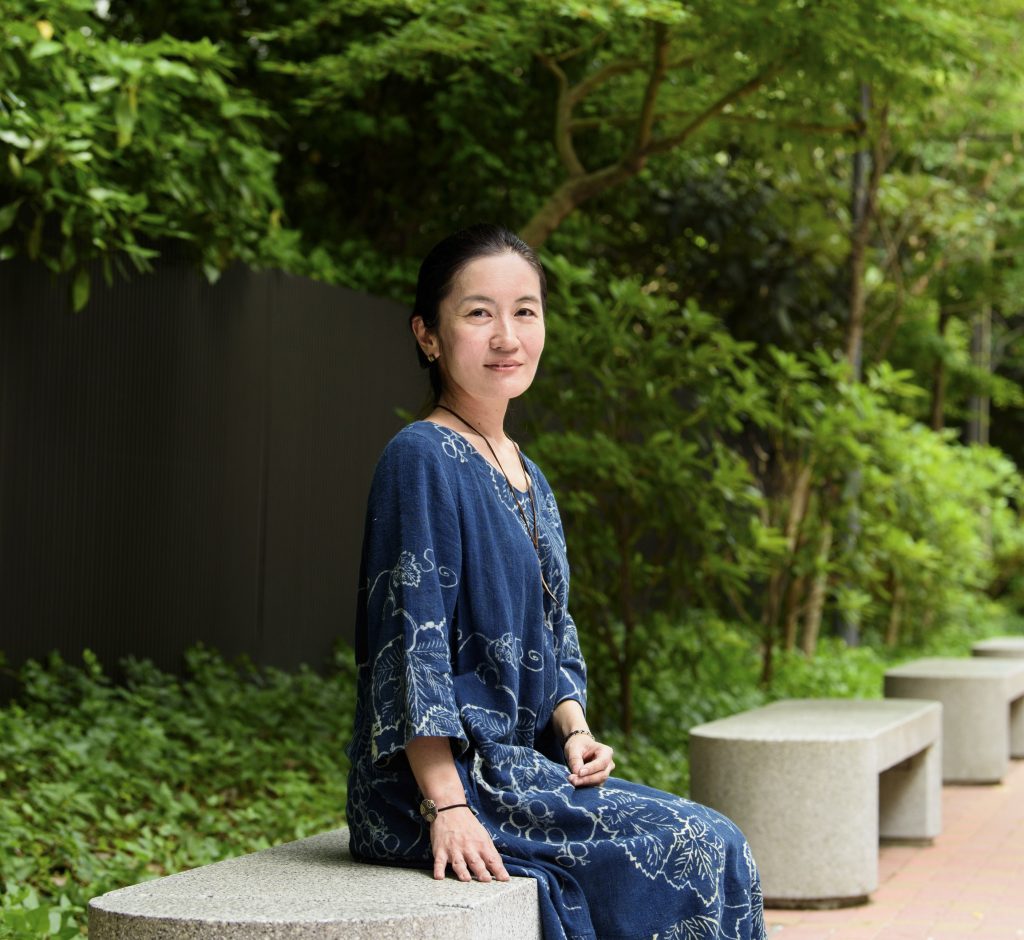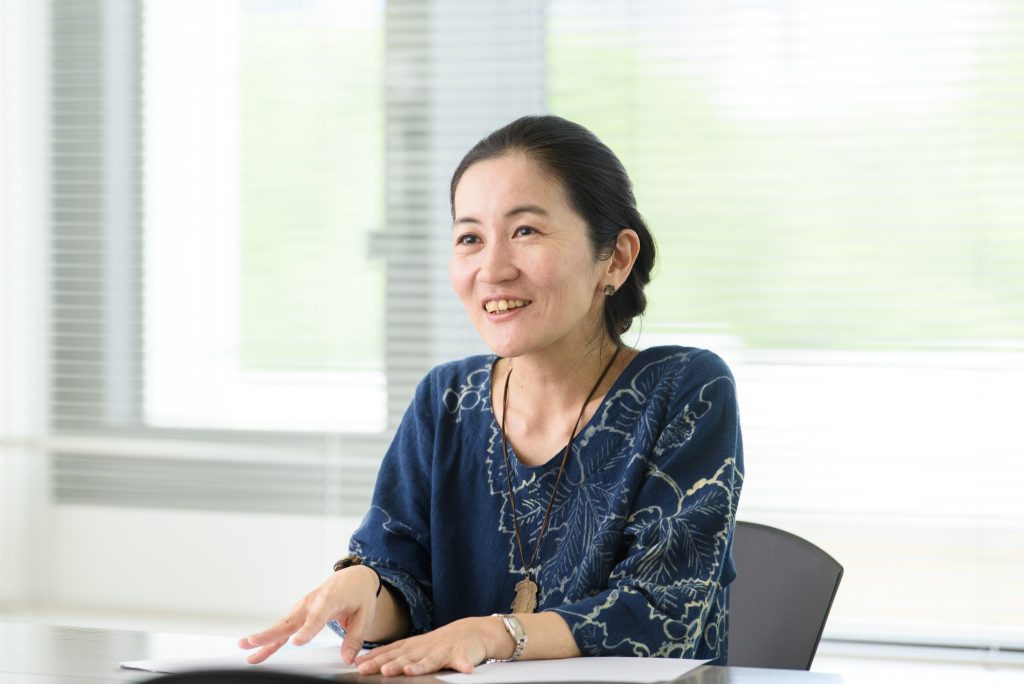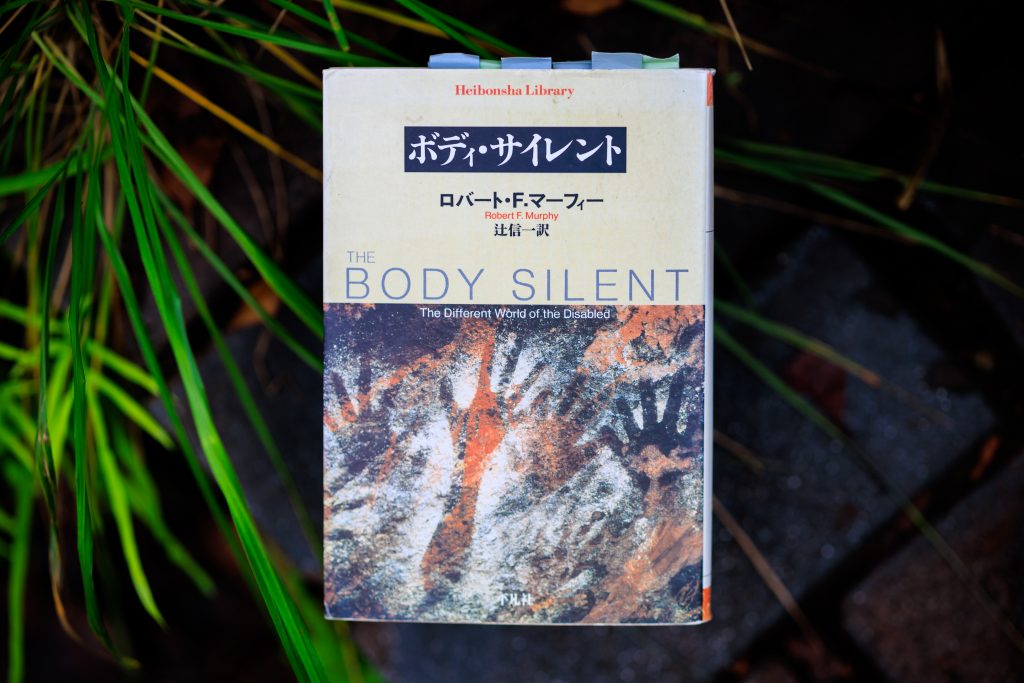
Associate professor Mikako Toda from the Faculty of Global Studies specializes in ecological anthropology, an unfamiliar academic field to many. Through her research, she explores hints for creating an inclusive society from the lifestyles in African forests.
In the early days of human history, instead of being marginalized, people with disabilities evolved society by encouraging care-giving behavior and fostering a sense of cooperation and community. Research* published in the United Kingdom in 2015 suggests that early humans were wiser than us. In fact, Neanderthal remains found in a cave in Iraq suggested that the person was given abundant care and lived a long life even though suffering from severe disabilities.
I continue to accompany and study groups of hunter-gatherers leading nomadic lives in the rainforest region of countries such as Cameroon and Congo. Among them, it is not rare to find people with disabilities caused by polio and such. However, public healthcare does not exist in this region. The sharing of food obtained each day equally within the group without any consideration of hierarchy is their way of life.
People with disabilities who cannot take part in hunting of that day are also given their share. They stay at camp and carry out childcare and other tasks. This is the same role as that of elderly people due to their age. Sharing and communal child rearing become a form of care, achieving inclusion in society.
In disability studies, “disability” collectively refers to any phenomenon which prevents an individual from doing something. Instead of attributing the issue to the individual or healthcare, the focus of research is on the changes in society as a whole. However, looking at people with disabilities in Africa, there seems to also be the aspect that such consideration ends up producing disabilities.
* Winder, N.P. and Winder I.C. 2015 Complexity, Compassion and Self-Organisation: Human Evolution and the Vulnerable Ape Hypothesis, Internet Archaeology 40.
https://doi.org/10.11141/ia.40.3
Pairing of ecological anthropology and disability studies

Ecological anthropology studies the mutual relationship between humans, the environment, and non-human organisms at the juncture of the natural and social sciences. With the philosophy of “count what moves and measure what’s static.”, it is an academic field that treasures grassroots investigations and statements that maintain the individuality of the people it is studying.
Similarly, anthropology studies seek to understand in detail people—including people with disabilities—in a locality and unravel the relationship between people, things, and the environment. Meanwhile, disability studies question the frameworks of society from the perspective of people with disabilities.
Therefore, it is effective to pair the two perspectives, each having a different direction. Disability studies tend to be oriented toward solving problems, but I hope to contribute toward social changes, development, and support using basic research.
Seeing results from research that I encountered by chance
I majored in physics when I was in university. While searching for information on the interaction of elementary particles on the internet, I accidentally came across an odd video of a person speaking loudly to someone who appeared to be ignoring the speaker. This was a video regarding research on the interaction of farmers in Africa. This incident immediately shifted my interest from space to humans.
When I first met people with disabilities in Cameroon, I did not feel the sense of “suffocation” that I had previously felt in discussions on disability and care. Seeking the reasons for this became the first step in a new research theme. I found people with disabilities applying sophisticated social skills to build close relationships with those around them because they needed all kinds of help from other people.
Since then, I have also been working to understand the changes in the lifestyles of people with disabilities in Africa as well as the relationship with the spread and penetration of religion to unravel the many layers of African society.
The book I recommend
“The Body Silent: The Different World of the Disabled”
by Robert Murphy, W.W. Norton

This is a gripping, candid autoethnography by a brave cultural anthropologist from the United States who conducted fieldwork in the Amazon, recording the tense relationship between his body—slipping into paraplegia—and society after he fell ill. This is a famous anthropological work, with the author himself as the subject, turning experience into theory, and looking at society (culture) through disability.
-
Mikako Toda
- Associate Professor
Department of Global Studies
Faculty of Global Studies
- Associate Professor
-
Graduated from the Department of Physics, Faculty of Science, Kobe University, enrolled in the five-year doctoral course of the Graduate School of Asian and African Area Studies, Kyoto University while concurrently serving as a research fellow (DC1) of Japan Society for the Promotion of Science (JSPS), and completed the doctoral course in September 2011. Received her Ph.D. in Area Studies in March 2013. Took on several positions—such as specially appointed research fellow for industry-government-academia collaboration at Kyoto University’s Center for African Area Studies, JSPS research fellow (PD), institutional researcher at the National Museum of Ethnology, and assistant professor at Sophia University’s Faculty of Global Studies—before assuming her current position in April 2021.
- Department of Global Studies
Interviewed: May 2024